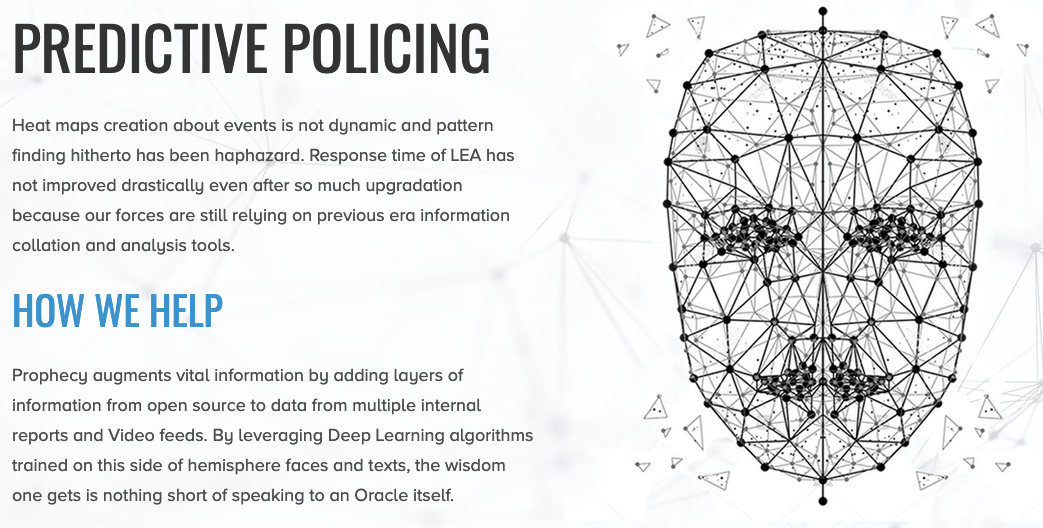Tl;dr
As per a report published yesterday in the Indian Express, the Delhi Police is using a “Automated Facial Recognition System” (AFRS) at public congregations. This is an act of mass surveillance and is completely illegal. We wrote to the Secretary, Ministry of Home Affairs and Commissioner of Police, Delhi demanding a complete halt and recall of the AFRS. Our legal notice sets out its illegality in detail.
It starts with low success rate in locating missing children
In 2017 a petition came to be filed in the Hon'ble High Court of Delhi docketed as Sadhan Haldar v The State NCT of Delhi [WP(Crl) 1560/2017] for locating and then reuniting missing children with their families. This is an incredibly positive aim which we can all support. Here seems that the Delhi Police and other public authorities were not being able to achieve success. In such a situation they turned to the promises offered by facial recognition technology.
The software for the facial recognition system as per the Indian Express report was sourced from M/s Innefu Labs Private Limited which claims on its website offers various law enforcement solutions. These include capabilities for “a 360 degree monitoring, AI driven predictive intelligence solution” titled as, “Prophecy”. We shudder at the thought that this is a vendor to the Delhi Police.

However, this that did not lead to much success with at least three orders of the Hon'ble High Court recording it's dissatisfaction with the facial recognition system as late as August 23, 2019. We already know such technologies are highly unreliable and scarce state resources should be used cautiously only after feasibility and rights based assessments. Stepping back, since even this High Court case contains no clear direction for the use of facial recognition software, even for instances of locating missing children a question arises, "What is the legal authority under which this facial recognition system is being implemented?".
Delhi Police must immediately halt mass surveillance
The facial recognition system being used in Delhi as per the Indian Express report is disturbing. We have sourced further public materials, which though limited confirm the basis of the report. All of these clearly point to multiple illegalities and harms. From building an underlying database of people from public protests to running it on crowds of people attending rallies. This directly impairs the rights of ordinary Indians from assembly, speech and political participation.
The present facial recognition deployments cause harms that even go further. Due to the high inaccuracy rates coupled with the use of law enforcement it throws up risks of bias that have have a high probability in causing coercive action. These are all harms which stem from a scant regard to the Supreme Court's nine-judge bench judgement in case of KS Puttaswamy v. Union of India (2017) that reaffirmed the fundamental right to privacy.
Concerned by this we put the Delhi Police to notice. The notice is extremely detailed and sets out the factual nuances and the several illegalities of the deployment. We are committed to taking further actions and are thankful to researchers such as Vidushi Marda and Srinivas Kodali for helping us provide inputs. We cannot win the fight against surveillance alone. All of us need to work together. A google doc version has been made available at the bottom of the page specifically to help you to craft similar notices or consider advocacy actions.
Further actions to safeguard you from facial recognition
We intend to focus our energies in 2020 on areas of surveillance as a priority. This includes pushing back against facial recognition not only in Delhi but across several cities in India. It builds off our past efforts including our legal notice to the NCRB's procurement of a national facial recognition system (read more here). From the early days of January we will work actively to ensure that India's data protection law contains surveillance reforms.
This will continue our model framework as proposed under #SaveOurPrivacy that has been used twice by Member's of Parliament to file private members bills. If you wish to support our work in 2020, make it stronger and more effective we urge you to donate to us regularly and also share ownership of our work by becoming an IFF member today (click here).
Important Documents
- Notice to the Delhi Police dated December 28, 2019 (PDF link and Google Doc)
- Indian Express report dated 28th December 2019 (link)

